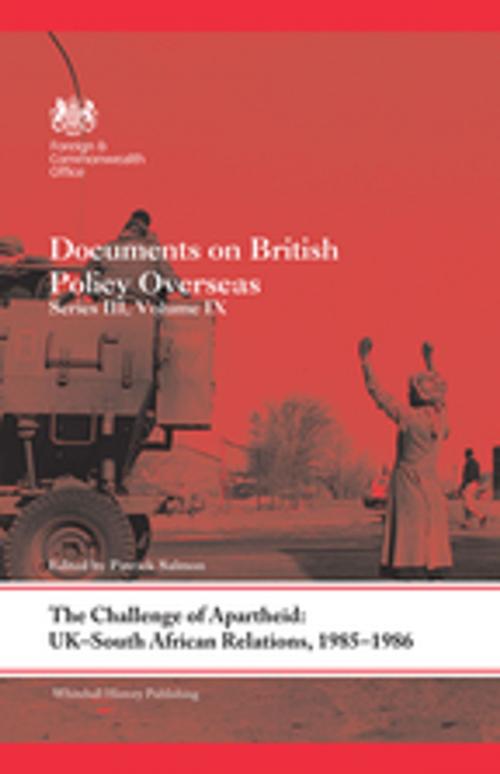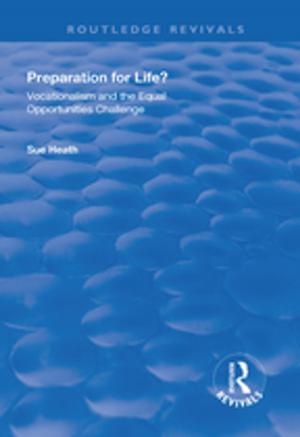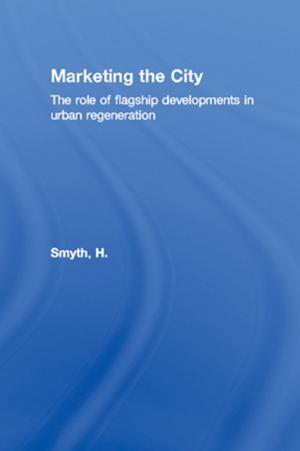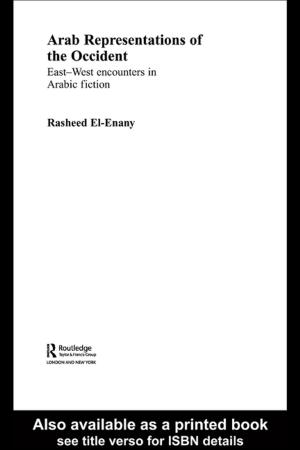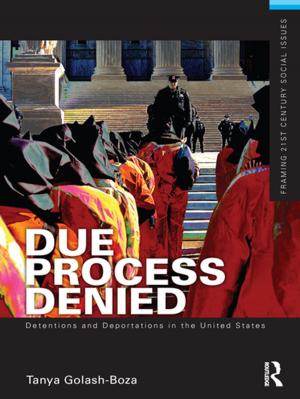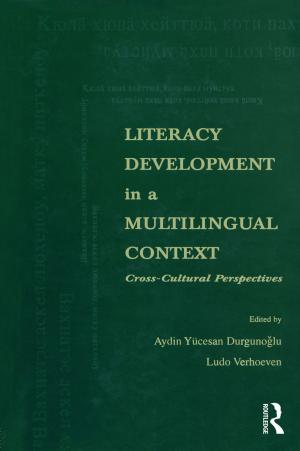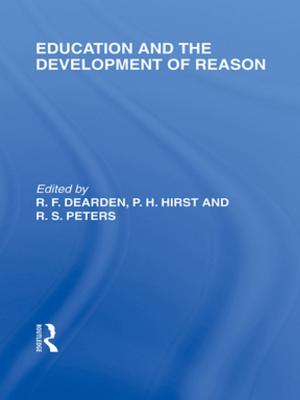The Challenge of Apartheid: UK–South African Relations, 1985-1986
Documents on British Policy Overseas. Series III, Volume IX
Nonfiction, History, Africa, South Africa, Social & Cultural Studies, Political Science, International, International Relations, British| Author: | ISBN: | 9781315456317 | |
| Publisher: | Taylor and Francis | Publication: | November 25, 2016 |
| Imprint: | Routledge | Language: | English |
| Author: | |
| ISBN: | 9781315456317 |
| Publisher: | Taylor and Francis |
| Publication: | November 25, 2016 |
| Imprint: | Routledge |
| Language: | English |
This volume examines diplomatic relations between the United Kingdom and South Africa during one of the most turbulent periods of the apartheid era.
The crisis of apartheid that began in 1984 provoked international outrage on an unprecedented scale. This volume documents the attempt by the British Government to formulate a response that would go some way towards meeting demands for action on the part of critics of South Africa in the Commonwealth, the United States and the European Community as well as in the United Kingdom itself, without at the same time inflicting unacceptable damage on Britain’s significant economic interests in South Africa. It was a process marked by frequent disagreements between Prime Minister Margaret Thatcher and the Foreign and Commonwealth Office under Sir Geoffrey Howe. The volume begins with reports of the deepening crisis at the beginning of 1985 and concludes with the Commonwealth Review Meeting in August 1986, one of the lowest of many low points in relations between the British Government and the critics of apartheid. In South Africa, meanwhile, there seemed little hope of progress following the imposition of a national state of emergency, as the confrontation between the Government and its opponents headed for deadlock and the power of the ‘securocrats’ surrounding President Botha became steadily more entrenched. This volume gives a flavour of what it was like to be a British diplomat working for change at that time.
This volume will be of great interest to students of International History, British Political History, African History and International Relations in general.
This volume examines diplomatic relations between the United Kingdom and South Africa during one of the most turbulent periods of the apartheid era.
The crisis of apartheid that began in 1984 provoked international outrage on an unprecedented scale. This volume documents the attempt by the British Government to formulate a response that would go some way towards meeting demands for action on the part of critics of South Africa in the Commonwealth, the United States and the European Community as well as in the United Kingdom itself, without at the same time inflicting unacceptable damage on Britain’s significant economic interests in South Africa. It was a process marked by frequent disagreements between Prime Minister Margaret Thatcher and the Foreign and Commonwealth Office under Sir Geoffrey Howe. The volume begins with reports of the deepening crisis at the beginning of 1985 and concludes with the Commonwealth Review Meeting in August 1986, one of the lowest of many low points in relations between the British Government and the critics of apartheid. In South Africa, meanwhile, there seemed little hope of progress following the imposition of a national state of emergency, as the confrontation between the Government and its opponents headed for deadlock and the power of the ‘securocrats’ surrounding President Botha became steadily more entrenched. This volume gives a flavour of what it was like to be a British diplomat working for change at that time.
This volume will be of great interest to students of International History, British Political History, African History and International Relations in general.
